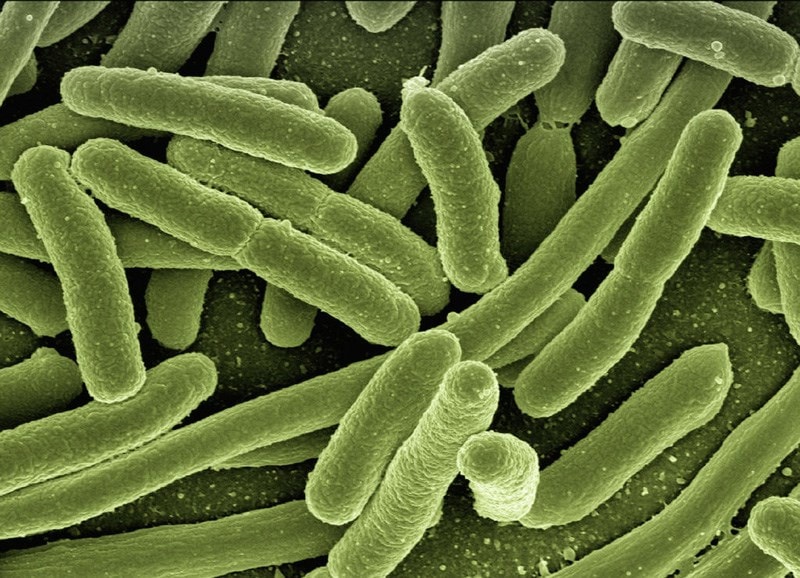How Diet Shapes Your Microbiome
The human gut is home to trillions of bacteria, collectively known as the gut microbiome, which play a crucial role in digestion, immune function, and even mental health. Emerging research has shown that dietary choices can rapidly alter the composition and function of gut bacteria - sometimes within a single day. Understanding the impact of diet on the gut microbiome can empower individuals to make informed food choices that promote long-term wellbeing.

Short-Term Dietary Effects on Gut Bacteria
A groundbreaking study in 2014, led by Harvard University researcher Lawrence David, examined how extreme short-term dietary changes influence gut microbiota1. Participants followed either a plant-based diet rich in fibre (vegetables, legumes, and grains) or an animal-based diet high in meat and dairy. Within just 24 hours, significant shifts in gut bacterial composition were observed:
- The animal-based diet increased bile-tolerant bacteria, such as Bacteroides and Bilophila wadsworthia, which are associated with inflammatory bowel disease (IBD) and liver cancer.
- The plant-based diet boosted fibre-fermenting bacteria like Firmicutes, known for their role in producing beneficial short-chain fatty acids (SCFAs) that support gut and immune health.
These findings suggest that diet-induced changes in gut bacteria may contribute to disease risk or protection, reinforcing the adage, "You are what you eat."

Junk Food, Gut Bacteria, and Brain Health
Beyond digestion, gut bacteria also influence cognitive function and mental health. A study from Oregon State University found that a high-fat, high-sugar diet impaired cognitive flexibility in mice2. Researchers linked this decline in brain function to changes in gut microbiota, supporting the concept of the gut-brain axis - the bidirectional communication between the gut and brain.
Studies have shown that gut bacteria produce neurotransmitters, such as serotonin and dopamine, which regulate mood and cognition. Research from the Oppenheimer Family Centre for Neurobiology and Stress suggests that probiotic supplementation may enhance cognitive function and stress resilience3. This growing body of evidence highlights the importance of gut health in mental wellbeing.
Western Diet vs. Traditional Diets: The Microbiome Perspective
Comparative research on gut microbiota has revealed stark differences between populations following traditional diets and those consuming a Western diet. A study published in Cell analysed the gut bacteria of individuals from Papua New Guinea, one of the least urbanised countries in the world, and compared them to US residents5).
Findings showed that Papua New Guinea residents had 50 additional bacterial species absent in the US population. Their microbiota diversity was higher and more uniform compared to the highly individualised microbiomes of Westerners. Westernisation, including diet changes and increased hygiene, may reduce gut microbial diversity, potentially contributing to higher rates of allergies, autoimmune diseases, and digestive disorders4. These insights emphasise the importance of maintaining a diverse gut microbiome for long-term health.
The Importance of Fibre and Probiotics
One of the key factors influencing gut microbiota health is dietary fibre intake. The University of Alberta highlighted the "fibre gap" in Western diets, where the average adult consumes only 18g of fibre per day - far below the recommended 30g7. Fibre serves as a prebiotic, feeding beneficial bacteria that produce SCFAs essential for colon health and immune function.
A study involving African American participants showed that switching to a high-fibre, South African diet improved colon cancer markers within two weeks6. Certain soluble fibres, such as psyllium husk, are known to exert a prebiotic effect, promoting the growth of beneficial bacteria. While increasing fibre intake can help restore microbial balance, regular probiotic supplementation may be needed to reintroduce lost bacterial strains.
Key takeaway
Diet plays a critical role in shaping the gut microbiome, with both short- and long-term implications for overall health. Scientific research underscores the importance of consuming fibre-rich foods, minimising processed foods, and considering probiotics to support a diverse and resilient microbiome.
References
- David, L. A., et al. (2014). Diet rapidly and reproducibly alters the human gut microbiome. Nature, 505(7484), 559–563. DOI: 10.1038/nature12820
- Magnusson, K. R., et al. (2015). Dietary modulation of gut microbiota alters behavior and cognition. Neuroscience, 300, 128-140. DOI: 10.1016/j.neuroscience.2015.05.005
- Tillisch, K., et al. (2013). Consumption of fermented milk product with probiotic modulates brain activity. Gastroenterology, 144(7), 1394-1401. DOI: 10.1053/j.gastro.2013.02.043
- Schnorr, S. L., et al. (2014). Gut microbiome of the Hadza hunter-gatherers. Nature Communications, 5, 3654. DOI: 10.1038/ncomms4654
- Martinez, I., et al. (2015). The gut microbiota of rural Papua New Guineans: Composition, diversity patterns, and ecological processes. Cell Reports, 11(4), 527-538. DOI: 10.1016/j.celrep.2015.03.049
- O'Keefe, S. J., et al. (2015). Fat, fibre and cancer risk in African Americans and rural Africans. Nature Communications, 6, 6342. DOI: 10.1038/ncomms7342
- Sonnenburg, J. L., & Sonnenburg, E. D. (2014). Starving our microbial self: The deleterious consequences of a diet deficient in microbiota-accessible carbohydrates. Cell Metabolism, 20(5), 779-786. DOI: 10.1016/j.cmet.2014.07.003
Popular Articles
View all General Health articles-
General Health08 Nov 2023
-
General Health05 Feb 2025
-
General Health01 Oct 2024


